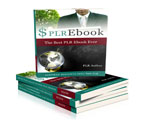 License Type: Personal Use
License Type: Personal Use  File Size: 388 KB
File Size: 388 KB File Type: ZIP
File Type: ZIP
 SKU: 52532
SKU: 52532  Shipping: Online Download
Shipping: Online Download
Ebook Sample Content Preview:
Chapter 5 How to Get Legal Rights to the Pictures You Shoot
As mentioned above, you don't just jump into the online stock photography industry by whipping out your camera, going out of the street, and start shooting away. This is especially true if you're going to hire models and take pictures of them indoors. You have to know the legalities involved; otherwise, you might get into all sorts of hot water later on. This is especially true if your photo becomes famous. There is a photo of a blond college student that became famous when a well-known domain broker used that stock photo as a place holder for vacant domains. As you can probably imagine, that photo of this blond college student shows up millions of times every single day. Thankfully, the photographer that took her picture got her to sign a release. If he didn't do that, that blond woman would be a rich person now thanks to a lawsuit. This is precisely the kind of problem you definitely want to avoid as you shoot photos for clients online. Keep the following information in mind so you can put together a checklist that ensures that you are protected from all sorts of legal headaches later on.
All photographers should get their subjects to sign a release. This legal document protects the photographer and the end user of the digital content from any legal liability regarding the ownership of the image. Normally speaking, a person has the legal right to make money of his or her likeness. There are also other legal rights that accrue to a person depending on the state that person lives in. In the United States, if you use somebody's personal likeness for commercial purposes without that person's permission, the person can sue you. The person can make a lot of money off of you. This is precisely the kind of headache you want to avoid by having that person sign a waiver. When the person signs a waiver or release, that person is giving up all rights to the use of that person's specific likeness contained in the images that you shot. That person still has the right to his or her likeness but waives that right to the photographs or video that you shoot. This is very important. No release can cover all future digital captures of that person's image. A proper and legal release can only cover your images of that person from specific photo or video shoot.
Another set of rights that person releases you from when the person signs on the dotted line of a waiver or release is the right to make money of derivative rights. You have to understand that when you take a picture of somebody, when you sell that picture, the end-user might turn that picture into an ad. The end user might turn that picture into a logo. That end user might turn that picture into all sorts of other graphical representations. These are called derivative works. The release that you give to your models should be broadly worded enough to cover derivative rights to the fullest extent of the law. Otherwise, the person might not be able to sue you for using their specific likeness, but they might be able to collect from the buyer of the image. The buyer of the image will then in turn sue you. So to prevent this legal case of passing the hot potato around, you can nip it in the bud by having your model sign a broad enough release or waiver.
Getting a waiver
There are many ways you can get a waiver. You can write your own legal release. You can use a template from the Internet, or you can get a lawyer to write it. These different approaches all have their advantages and disadvantages. I'm going to break down the pros and cons of these different approaches below.
Write your own legal release
The easiest way to get a release for the production of digital stock photography or video stock is to write your own. Obviously, you are not a lawyer unless you went to law school and passed the bar. It's probably a bad idea to write your own legal release. This is very risky. The reason is that you might leave certain key provisions out. Also, you might draft the release on such a way that it's very vague or very broad. You have to understand, according to American jurisprudence, any vagueness, any obscurity in the legal terms or any confusion will
be interpreted against the party that wrote the contract or agreement. In other words, the court will come out against you because you wrote the release. It is very risky to write your own legal materials if you are not a trained lawyer.
Use a template release from the Internet
There are many websites that sell legal releases. There are also many blogs that offer free releases. If it were up to me, I would just pay for a template release from a website that sells it. The reason why I would take this route is because most of these legal form's websites are run by lawyers. They are specifically trained lawyers that went through all the forms to make sure that they have the proper legal effect. They also took the time and the care to make sure that the legal forms cover precisely the kind of legal situations the buyer wants them to cover. The problem with this approach is that first, it costs money. In many cases, the more specialized the form, the higher the amount of cash you have to fork over. Moreover, many of these legal forms are so broadly worded, or so comprehensive that a lot of the provisions really are not needed. In many cases, if you are getting into a simple contract with somebody, if you use an online contract, the contract might be twelve pages long. In many cases, the provisions don't apply. You take the risk of knocking out certain provisions because they don't apply. The problem is you're rolling the dice when you do this. You might be knocking out provision that actually protected you. On the other hand, if you keep these provisions in the contract, it might intimidate the other party so much that the person doesn’t want to do business with you anymore. While using a template release is a better way to get a release than writing your own, it definitely isn't without its problems.








